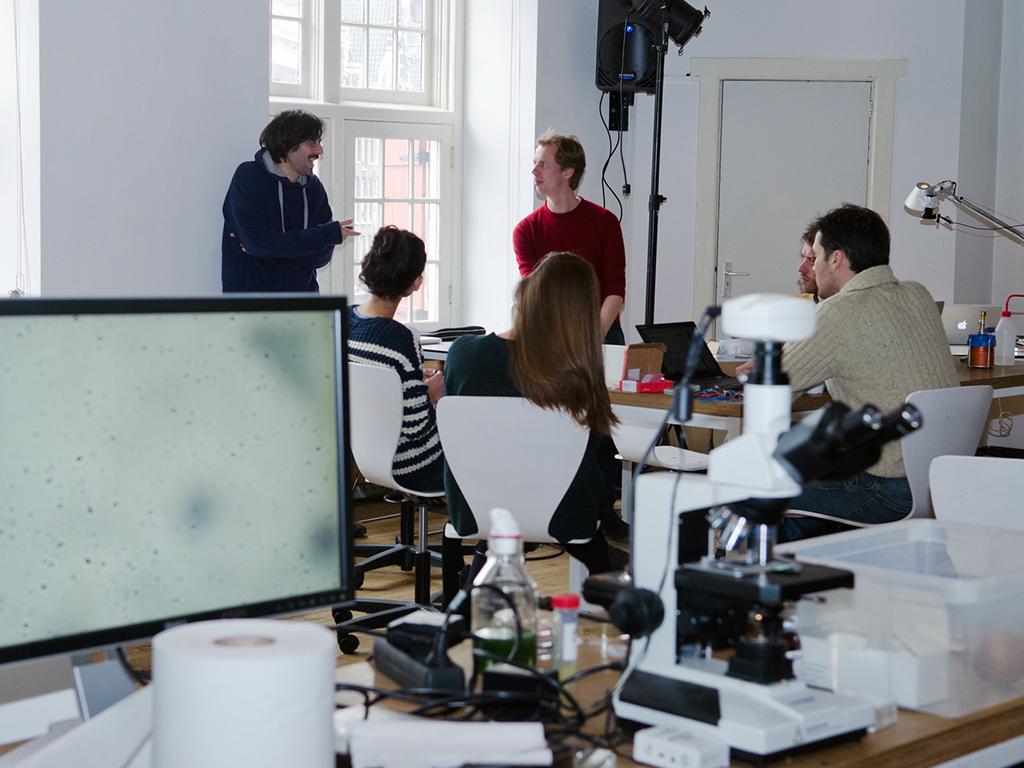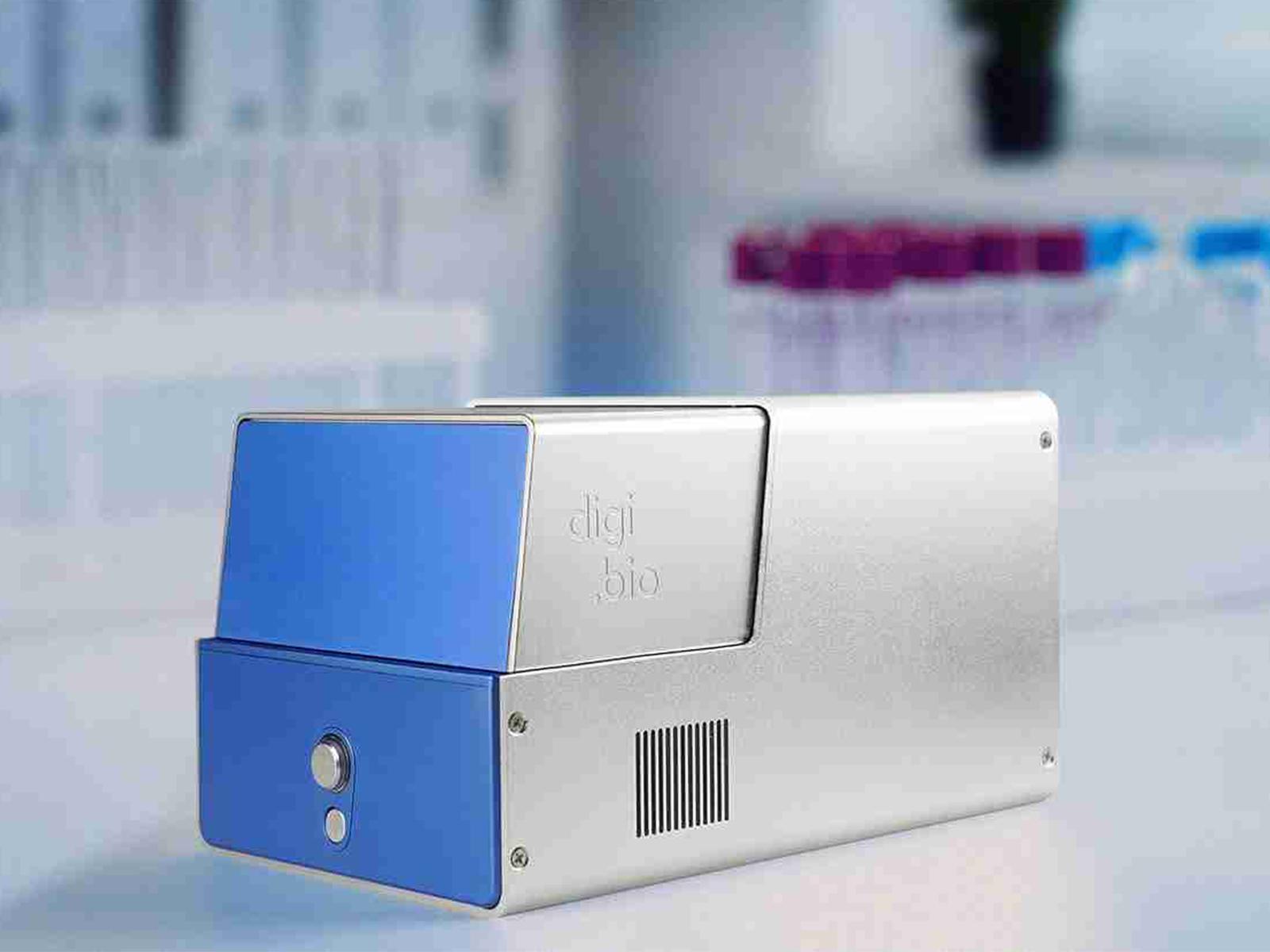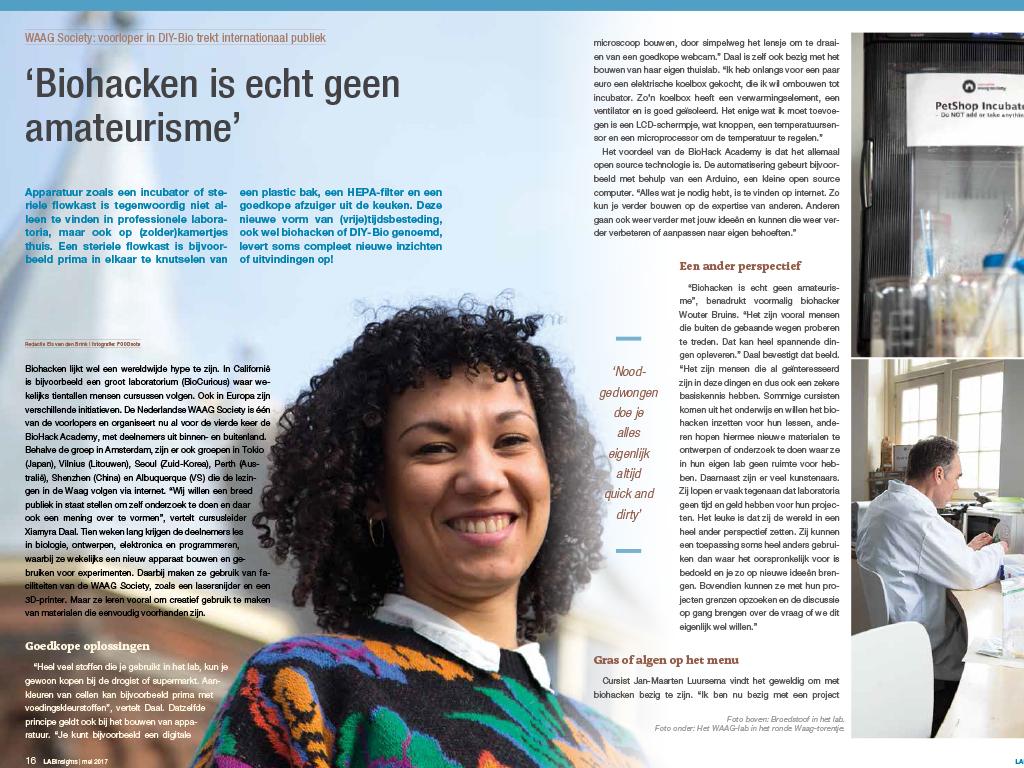On May 31, the EU institutions are hosting the first-ever EU Institutional Maker Faire, which will feature Makers, innovators, and entrepreneurs of all ages who are using cutting-edge tools to bring their ideas to life.
Workshop on “DIYBiology: Hacking Living Material” by Pieter van Boheemen (Waag, Netherlands)
Workshop description: Fablabs, makerspaces and hackspaces are entering the domain of biology, making the required expensive technology low-cost and accessible to non-scientists. Such DIY devices, often referred to as ‘hacks’, enable citizens, designers and artists to explore the possibilities of working with living materials. In this workshop we will hack a webcam into a microscope and use it to examine several biological materials including your own DNA.
Pieter van Boheemen is a hacker, artist, engineer, researcher and teacher driving forward Free & Open Source Technologies as a catalyzer for social innovation. He leads the Open Wetlab, Open Design Lab and FabLab Amsterdam at Waag Institute for Art, Science and Technology. He has organized dozens of hands-on art science “Do It Together Bio” workshops, founded and let > 150 Dutch DIYBio Community events, runs a micro-organism store, and presents a YouTube channel on making and hacking things. The outcomes have been displayed at mayor international art, design and science museums and festivals. In 2015 he also established the first international open collaborative distributed biohackers training program, BioHack Academy, supporting the launch of new biohacking groups in the US, Brazil, Japan, Iran and across Europe.
He coordinates several European research projects within his group at Waag and participated in KIICS, MakingSense, BrainHack and DITOs.


